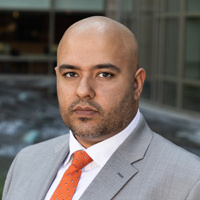 Bass Lake RICO Act Lawyers, California
Bass Lake RICO Act Lawyers, California
Sponsored Law Firm
-
 x
x

Click For More Info:
-
The Law Offices of Richard L. Cooper, P.A.
848 Brickell Avenue Suite 800 Miami, FL 33131» view mapDWI/DUI, Drug Trafficking, Felony Nationally Ranked Top 40 Under 40
With Richard L. Cooper you can expect a trusted confidant who will work diligently to fully understand your case and determine a road map to help you regain control of your life.
800-756-2781
Not enough matches for Bass Lake RICO Act lawyer.
Below are all Bass Lake Criminal lawyers.
Sponsored Lawyers
1-10 of 24 matches
Immigration, Accident & Injury, Criminal, Employment, Lawsuit & Dispute
Sarwinder Singh Dhanjan was born in Sanger, California and has continued to reside in Clovis, California since that time. From early in his childhood, Mr. Dhanjan knew that he wanted to pursue a career as an attorney. Mr. Dhanjan graduated from Clovis East High School in 2005. Mr. Dhanjan received an Associate’s Degree from Fresno City College in 2007. Mr. Dhanjan then attended and graduated the University of California Santa Cruz in 2010 receiving two Bachelor’s Degrees; one in Legal Studies and the other in Psychology. In 2013, Mr. Dhanjan earned a Juris Doctorate Degree from San Joaquin College of Law, passed the bar exam on his first attempt, and was admitted to the California State Bar by the end of the year. Mr. Dhanjan decided to immediately open his own law firm and opened SSD Law Firm in early 2014. Since that time, he has created relationships and friendships with many of his clients and colleagues that has assisted the growth of businesses and individuals alike. Those who have met Mr. Dhanjan have said that they prefer to work with him because he is very ‘down to earth’, pleasant in his communications, while also delivering the honest and truthful message that can be clearly understood by the receiver. Others have stated, “Mr. Dhanjan is someone you want on your team!”
(more)Criminal, DUI-DWI, Immigration
Central Valleys' most dedicated DUI and DMV lawyer. I will put on the gloves and fight for you. This charge does not have to ruin your life.
(more)



 Richard L. Cooper Miami, FL
Richard L. Cooper Miami, FL AboutMiami Attorney at Law
AboutMiami Attorney at Law ServicesCriminal Defense
ServicesCriminal Defense



